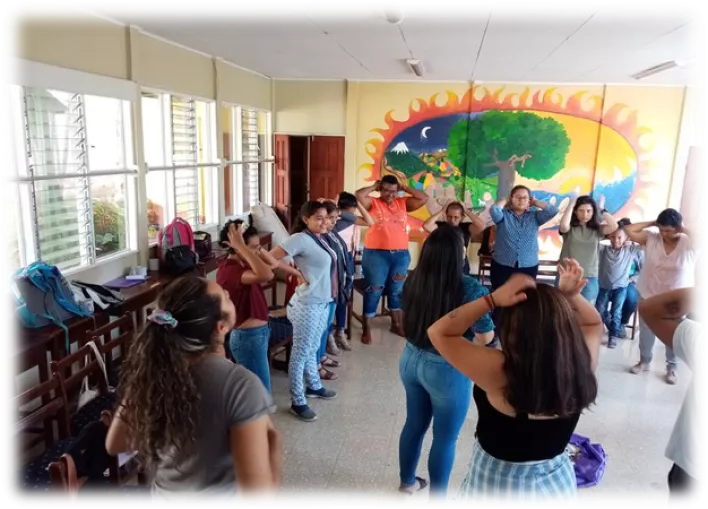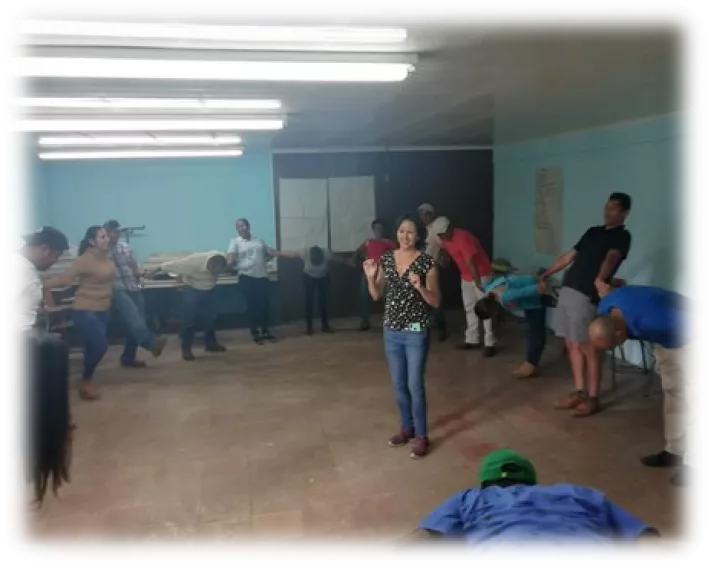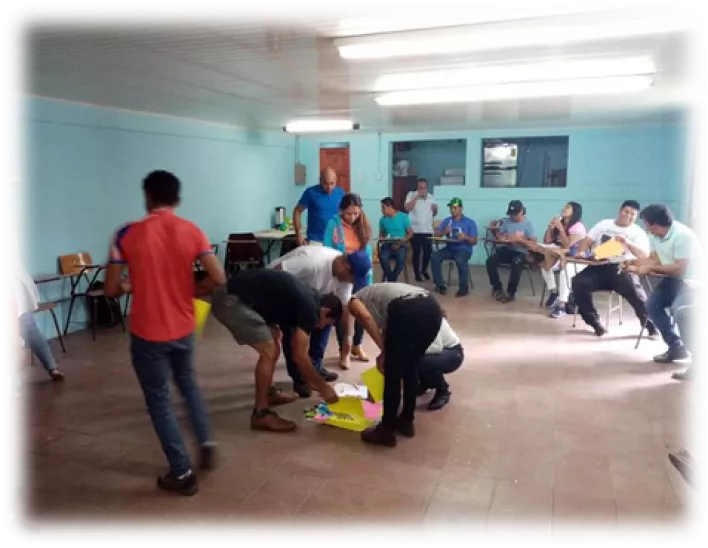
Accompanying Nicaraguan organizations and social groups in exile in Costa Rica: providing support to construct organizational and community strengthening including protection strategies through peacebuilding with psychosocial and gender perspectives.
Since 2020, Peace Brigades International has begun a new project in Latin America, PBI Nicaragua in Costa Rica, that seeks to accompany Nicaraguans in exile. Since the social crisis of April 2018, over 100,000 Nicaraguans have been exiled from the country and Costa Rica has received 77,000[1] as refugees.
The situation of exile implies not only saying goodbye to one’s territory, but also to leave behind personal and collective projects, to restructure and build new projects that allow people to freely exercise their rights. It means to be separated from the life cycle of loved ones, of the country, politics, culture, religion, customs, and the building of community from a position of exile.
PBI Nicaragua in Costa Rica accompanies the farm workers’ movement as well as women and youth in exile in Costa Rica through workshops that seek to respond to the psychosocial impacts of exile and provide protection, self-care, and organizational strengthening strategies. We maintain our peacebuilding focus through psychosocial and gender perspectives.
Each space of work implies finding and strengthening internal and external networks of each group, which includes a view into the personal process of each participant and the re-framing of the lived experiences of exile. The route from Nicaragua to Costa Rica isn’t easy. The physical and emotional baggage are varied and complementary between people. Despite the physical and emotional wounds, strength remains, specifically hope that Nicaragua will receive these people once again and fulfil their rights as citizens.
In the little time that the project has existed, we have seen the strengthening of social fabric through the need to defend and exercise the rights of those living in Nicaragua as well as the struggles of those in exile.
Today Covid-19 represents a new threat to the lives of those in exile, not only for the risk to health but also for the situation of vulnerability they find themselves in. The defense strategies continue to center round the strengthening of networks, bringing together efforts and collective responses through allied organizations and citizen initiatives.
The project, like all other PBI projects, accompanies human rights defenders, making use of all the tools available for safe communication that allow us to reach individual and collective groups of those in exile. Our commitment is day to day, presential, but currently also virtual.
All the proposed spaces generate the construction and de-construction of learnings, seeking to unify the interests for those who defend human rights and those who hear the constant desire for “a free Nicaragua”.
Our spaces:
We have been developing the contents of the spaces we organize, focusing on organsiational and psychosocial strengthening. The methodology seeks to work from the lived experience of each participant on collective and individual levels as well as projections for the future. We also seek to undertake an analysis of the context and risk that allows for the generation of protection and self-care strategies that confront the socio-political violence in Nicaragua. Social fabric networks are strengthened, understanding that the possibility of reparation, healing and strengthening is found within the multiple networks of each person or community as well as the internal strengthening of each organization that has been fragmented or weakened. The idea is to undertake a critical and realistic plan that contemplates the specific contextual needs of those accompanied.


[1] ACNUR- Agencia De Las Naciones Unidas Para Los Refugiados. Informe Mensual De Las América. Enero 2020.
Disponible en internet: https://www.acnur.org/op/rep_am/5e5598334/informe-mensual-de-las-americas-enero2020.html?queryAcnur%20y%20nicaragua
